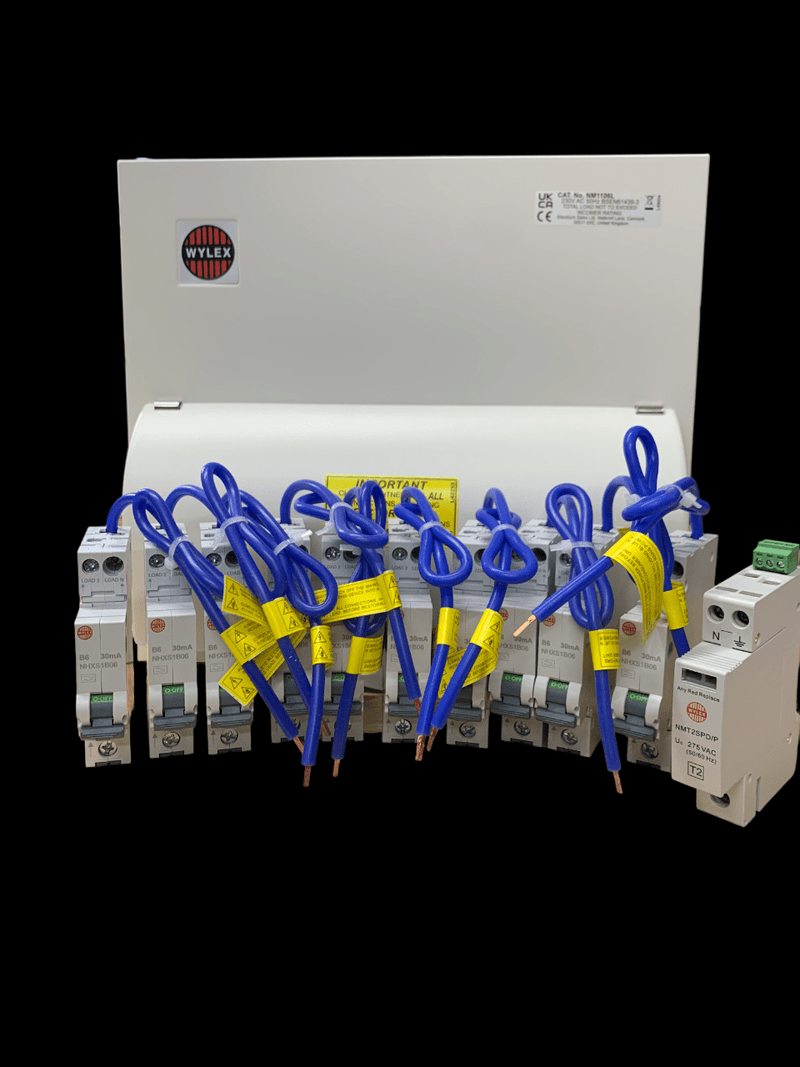How RCBO CONSUMER UNITS Enhance Electrical Safety in Residential Spaces
How RCBO CONSUMER UNITS Enhance Electrical Safety in Residential Spaces
Blog Article
The Role of Consumer Units in Reliable Energy Management Systems
Consumer systems are integral to efficient energy administration systems, offering as the key distribution points for electrical power within frameworks. The arrival of wise modern technologies has even more improved their performance, allowing for real-time information tracking and nuanced energy consumption evaluation.
Recognizing Customer Systems

Recognizing the role of consumer systems begins with identifying their important function in securing electric systems. By separating faults within certain circuits, consumer units protect against widespread blackouts and prospective fire dangers. This seclusion is achieved via the usage of breaker that trip or integrates that strike when a mistake is identified, thereby removing the electrical circulation to the influenced circuit.
In addition, consumer systems help with the orderly distribution of power, boosting the performance of power usage. They permit the methodical monitoring of electric loads, which can be specifically vital in industrial and commercial setups where demand can rise and fall substantially. Correctly kept customer systems add to the durability of electric systems and help in decreasing downtime brought on by electrical failures, inevitably supporting the smooth operation of energy-dependent centers.
Smart Technologies Assimilation

An essential benefit of smart consumer devices is their capability to leverage advanced algorithms and artificial intelligence for anticipating analytics. This enables preemptive changes based upon use patterns, weather report, and various other variables, dramatically enhancing general efficiency. Additionally, smart customer units promote demand response programs, where energy usage can be dynamically readjusted during optimal periods to stabilize the grid and minimize prices.
The integration of renewable resource sources, such as solar and wind, is also streamlined with smart consumer systems. By smartly taking care of the intermittency of these sources, these devices guarantee a trustworthy and well balanced power supply. In addition, clever consumer units enhance user interaction by supplying detailed understandings and remote capacities through mobile applications, fostering a more aggressive approach to energy preservation and sustainability.
Surveillance Power Usage
Building on the abilities of clever technologies assimilation, keeping an eye on energy consumption comes to be a critical focus within power monitoring systems. By leveraging advanced metering infrastructure (AMI), real-time data on power usage can be accumulated at granular levels, supplying important insights right into usage patterns and peak need periods.
Smart meters and Internet of Things (IoT) tools play a crucial role in this surveillance process. These gadgets can track energy use in real-time, transmitting data to central systems for evaluation. The gathered information is then processed via advanced formulas to discover abnormalities, anticipate future usage, and suggest optimization strategies. Furthermore, cloud-based services offer scalable platforms for keeping and evaluating large datasets, promoting remote tracking and control.
The combination of these technologies not just equips customers with detailed info regarding their power use however likewise sustains energy service providers in taking care of load distribution better. Ultimately, accurate and continuous tracking is indispensable for achieving energy effectiveness, cost savings, and sustainability objectives within energy management systems.
Optimizing Home Appliance Use

One efficient method entails determining height and off-peak hours to change energy-intensive tasks, such as washing or dishwashing, to times when power demand is reduced. This not only minimizes strain on the grid but likewise maximizes reduced energy tariffs. In addition, incorporating equipment learning formulas allows for predictive upkeep, making sure home appliances run at ideal effectiveness and prolonging their lifespan.
Power administration systems can likewise include user-specific preferences and habits to customize home appliance usage schedules. Wise lights systems can change illumination based on tenancy and all-natural light availability, while HVAC systems can maintain convenience levels without extreme energy usage.
Encouraging Sustainability
Advertising sustainability within power management systems includes not just enhancing performance but also fostering ecologically liable practices. Customer units are important to this process, as they give real-time information and control systems that make it possible for individuals to monitor and reduce their power consumption. By leveraging sophisticated technologies, consumer devices can recognize energy-saving opportunities and promote the assimilation of renewable resource resources like solar and wind power.
One critical facet of advertising sustainability is educating consumers on the benefits of accountable energy use. Through comprehensive insights offered by customer devices, individuals can make enlightened choices that reduce their carbon footprint. As an example, these units can advise optimal times for running high-energy devices based upon grid need and renewable resource accessibility, consequently reducing dependence on fossil gas.
Moreover, customer systems support the adoption of smart grid modern technologies, which boost the total effectiveness and reliability of power circulation. By making it possible for two-way interaction between customers and energy companies, these systems can dynamically get used to energy needs, minimizing waste and advertising the usage of sustainable power practices.
Final Thought
Customer systems, as indispensable view website elements of power management systems, dramatically enhance electrical security and efficiency within buildings through circuit defense and wise innovation assimilation. In addition, the unification of sustainable power resources advertises lasting techniques, contributing to minimized total energy usage and lower carbon impacts.
Breakthroughs in wise technologies have reinvented the capacities of energy management systems, particularly via the assimilation of clever consumer devices.Building on the capacities of smart modern technologies assimilation, keeping track of energy consumption comes to be an important focus within power management systems.Reliable device use optimization is an essential element of energy administration systems, aiming to boost official statement performance and decrease unnecessary energy consumption.Consumer units, as important components of energy monitoring systems, substantially boost electrical safety and security and performance within buildings with circuit security and clever modern technology assimilation. Additionally, the incorporation of sustainable energy sources promotes sustainable techniques, adding to lowered total energy usage and lower carbon impacts.
Report this page